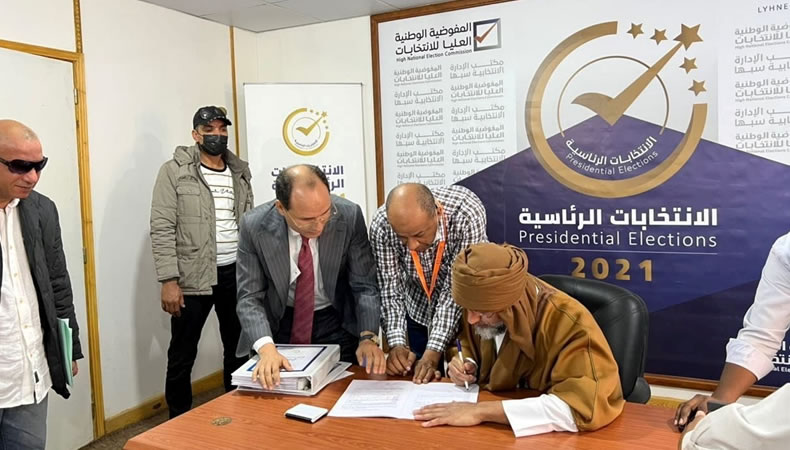Libya’s election process close to collapse as commission fails to announce candidates’ list


“Given the sensitivities of this stage and the political and security circumstances surrounding it, the commission is keen to exhaust all means of litigation to ensure its decisions comply with issued judgements,” the commission said in a statement on Saturday.
With less than a fortnight to the elections, candidates will have virtually no time to conduct campaigning for the vote. A further delay of candidate list announcement by the electoral commission would be big blow to international hopes of bringing peace in the country and uniting it after years of chaos. Global leaders and international bodies, like United Nations, are backing the Libya’s presidential election.
A fear is assimilating that the gained momentum of country towards democracy may be crushed due to withering election process. If the election gets postponed, it will be a situation close to commotion where the international bodies and foreign powers would have to come to an agreement on whether to extend interim government’s term in order to fill in the political gap in the country and prevent a ‘return of civil war’.
“How I wish that hope would triumph over experiences but unfortunately that has always not been the case. Remember that this election was previously planned for early 2019 but were delayed due to General Khalifa Haftar, one of the major players in the conflict launching a military campaign to dislodge the UN-backed Government of National Consensus,” said Osmond Agbo, a public affairs analyst.
The HSC (High State Council) has also called for postponing the elections to next year February. Umm Al-Ezz Al-Farsi, a member of the Political Dialogue Forum, said in a Facebook post, “the people have no hope other than renewing legitimacy, which bears the burden of choosing the excavations that dominate the current political scene and obstruct the course of trading. The path of trading will bring everyone to safety. There is no alternative but direct and simultaneous elections or an earthquake under their flimsy thrones.”
There have been increasing disagreements over list of candidates. Court rulings have overturned decision by electoral commission to block candidacy of high profile people like Saif al-Islam Gaddafi, the son of the former dictator. The interim prime minister, Abdul Hamid Dbeibah and warlord Khalifa Haftar, the head of Libyan National Army, have been approved by the commission, a decision that has been challenged by opposition parties.
UN mission to Libya has advised all involved not to step back from the election schedule in order to not reverse the gains made. The US ambassador to Libya, Richard Norland, said “refusing to go to the elections and mobilising to obstruct will only place the fate and future of the country at the mercy of those inside Libya and their external backers who prefer bullet power over ballot power”.




